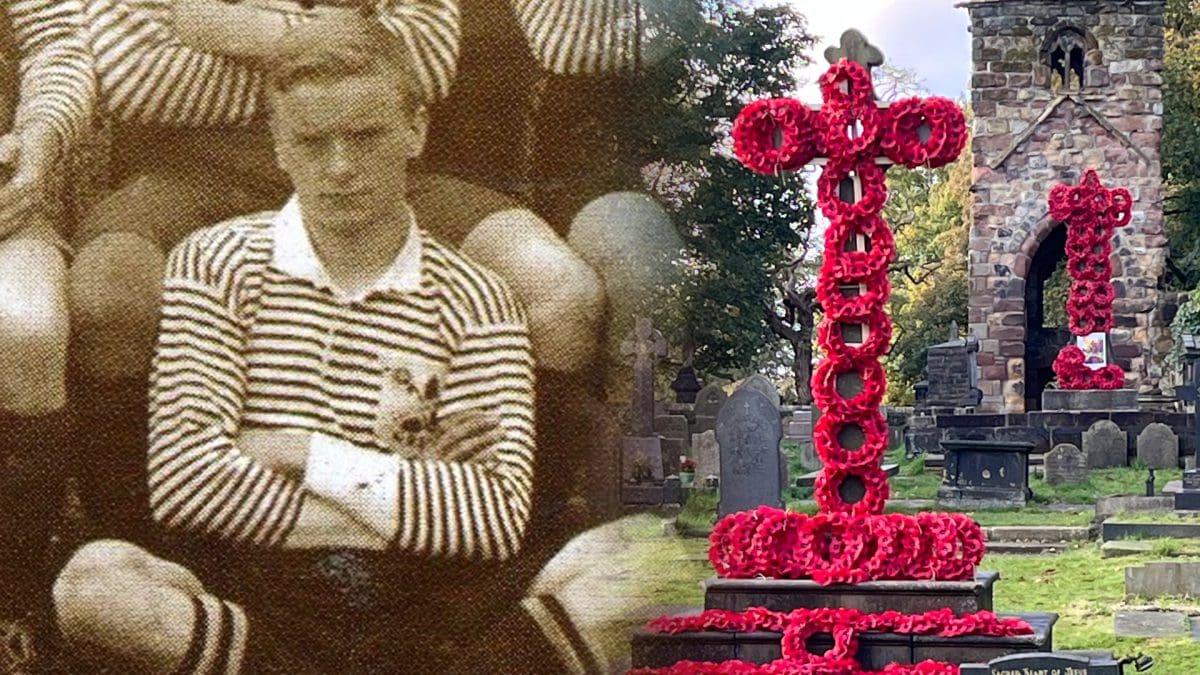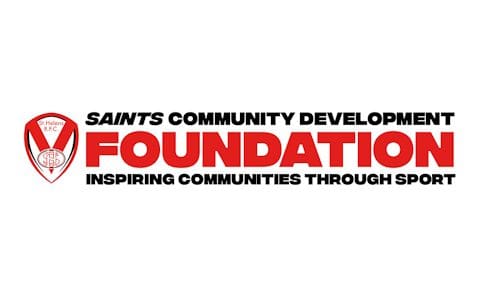On 2024's Remembrance Sunday and Armistice Day on Monday, all connected with St.Helens R.F.C. will have in their thoughts the countless sacrifices made by so many during conflicts, particularly in both World Wars.
Our Club like so many has been touched by stories of the tragedy and bravery from players, officials and supporters who paid the ultimate price, or suffered the effects following such challenging circumstances.
In November 1914, the First World War had been raging since early Autumn and competitive Rugby League, or Northern Union as it was then known, was still taking place, although Chairman of the Union Joseph Platt added:
“With the proviso that it is the bounden duty of every one of us to encourage every player as well as every football enthusiast of suitable age and capacity to give his best service to the nation at this juncture. It will be a far greater honour to our Union and clubs for the players to be serving the King and Country rather than winning championships on the football field.” By the end of the 1914-15 season, such was the pressures of the ‘greater game’ elsewhere that competitions were suspended until the end of the war.”
The St Helens Newspaper on 3rd November talked about the huge impact of the war on our town and leisure time pursuits:
“The war has probably had more effect upon sport in St Helens than in most other towns as over 7,000 of our men between the ages of 17 and 35 are serving with the colours in various capacities. Among them is a good number of footballers and it may be assumed that the bulk of the 7,000 are men who take an interest in sport and would therefore be present at most of the principal matches in the town.”
Over 14 players who turned out in the 1913-14 season had become unavailable for the current Saints’ team. The paper also reported that military recruitment had also had a recent, temporary impact: “Flanagan joined the Pals battalion of the South Lancashire Regiment and has been vaccinated, which prevented him turning out on Saturday.”
Jimmy Flanagan of Irish extraction was a labourer at Gerards Bridge chemical works and a former winger who had graduated to the centres with great success. The county representative had signed up for the famous 11th South Lancashire ‘Pals’ regiment, with other Saints’ players including James ‘Butcher’ Prescott, Teddy McLoughlin and Walter Groves.
The ‘Pals’ concept, volunteering with friends and workmates, was a national initiative, driven locally by Lord Derby, later the President of St Helens RFC. Flanagan’s last match for St Helens, his 231st [he scored 125 tries] was the 1915 Challenge Cup final on 1st May 1915, when the somewhat below strength Saints were defeated by a powerful Huddersfield outfit.
Whilst serving his country, Jimmy was wounded in action and was briefly repatriated to a hospital in Leicester in October 1916 but later returned to the front when tragedy struck. The Lance Sergeant was to pay the ultimate price when he was killed by shrapnel on 13th May 1918 and died the day after being hit, at just 31 years of age. His wife Ellen received official notification of his passing seven days later, on Whit Monday morning. Jimmy was laid to rest at Arneke British Cemetery, Nord, France with 443 other casualties of war. His campaign medals are proud reminders of his bravery in the face of the many dangers on the battlefields of France.
Three years later the Flanagan household was still coming to terms with their loss. It included Jimmy’s widow, Ellen, aged 31. There were 6 children: James [11], Patrick [9], Mary [7], Eilleen [5], and two twins, Hugh and Denis, at just 2 years and 9 months old, who would never see their father after his sad demise. There were also 3 other adults, all from County Fermanagh, including Ellen’s uncle, Hugh and her two brothers, James and Hugh Graham.
Yet there was further tragedy to come. James and Ellen’s son Denis [one of the twins] died on 9th February 1943 at the age of 24. A Fusilier in the 1st Battalion of the Royal Irish Fusliers [Reg No 3774271] he is buried at Medjez-El-Bab in Tunisia.
The poppies currently adorning lampposts in our town serve as poignant reminders of the suffering endured by thousands of families like these whose members have served and suffered for their country in both World Wars. There is also the magnificent tribute at Windleshaw Chantry, close to Saints’ training HQ at Cowley School, emphasising the supreme sacrifices of so many.
We Will Remember Them.



















































